Block paving nowadays has become the most popular choice for homeowners to enhance visual appeal and value of the property. Pavers are commonly used in exterior pavement applications. Paver block is a thin, flat block or un-reinforced piece of precast concrete or clay, laid on a thin, compacted bedding material. Interlocking pavers are used in outdoor hardscaping (Hardscape – the man-made features used in landscape architecture). To give the best aesthetic look to the patio of your house pavement and driveway pavers are the best option available in the market.
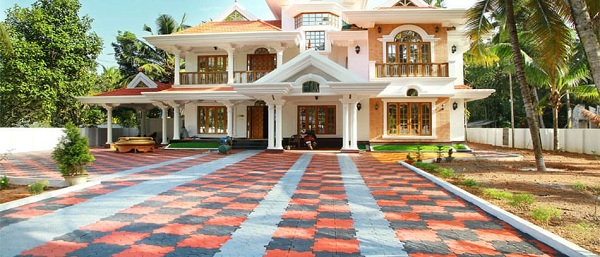
Courtesy – msinterlock
Block paving is a flexible pavement where load on surface is transferred to the underlying layers by load distribution. Flexible pavements like railway tracks which are standing on only crushed stone base is a classical case of flexible pavement. It is mortarless. The traffic load is distributed to the subgrade.
Due to availability from the large selection of materials, patterns, sizes, shapes and colours, most of the people prefer interlocking pavers to the concrete, slab and asphalt or any other rigid pavement. It is durable, ineffective to weather, environment friendly, cost effective, slip resistant and easy to install, repair and maintain.
Also Read: Advantages of Interlocking Paver Block
Paver Materials
- Concrete (cement, sand, water and pigment)
- Clay
- Natural Stone (granite, limestone, marble, sandstone, bluestone, travertine, flagstone and cobblestone)
- Recycled Materials (Plastic, recycled tyres)
Types of Paver Block
Here we have give you tried to an overview on the various types of paver blocks:
Interlocking Concrete Paver Block:
Interlocking concrete paver is made up of combination of cement, water, sand & gravel. All the ingredients are well mixed, which are then it filled into the moulds and pressed at high pressure for greater density and strength. This paver has ability to lock the blocks together because of its geometry to give extra strength to the pavement[
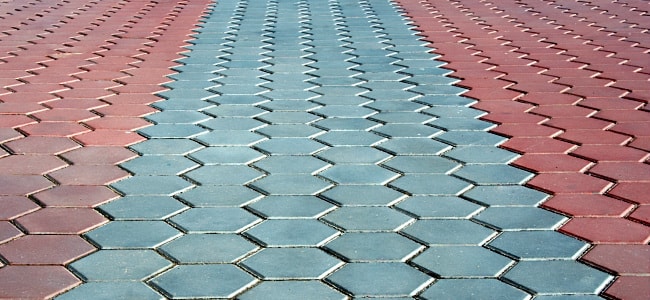
Courtesy – stewartperry
Natural Stone Paver:
Natural stone pavers are usually mined or collected from a quarry or rock outcrop and then cut into the shape of pavers for ease of installation
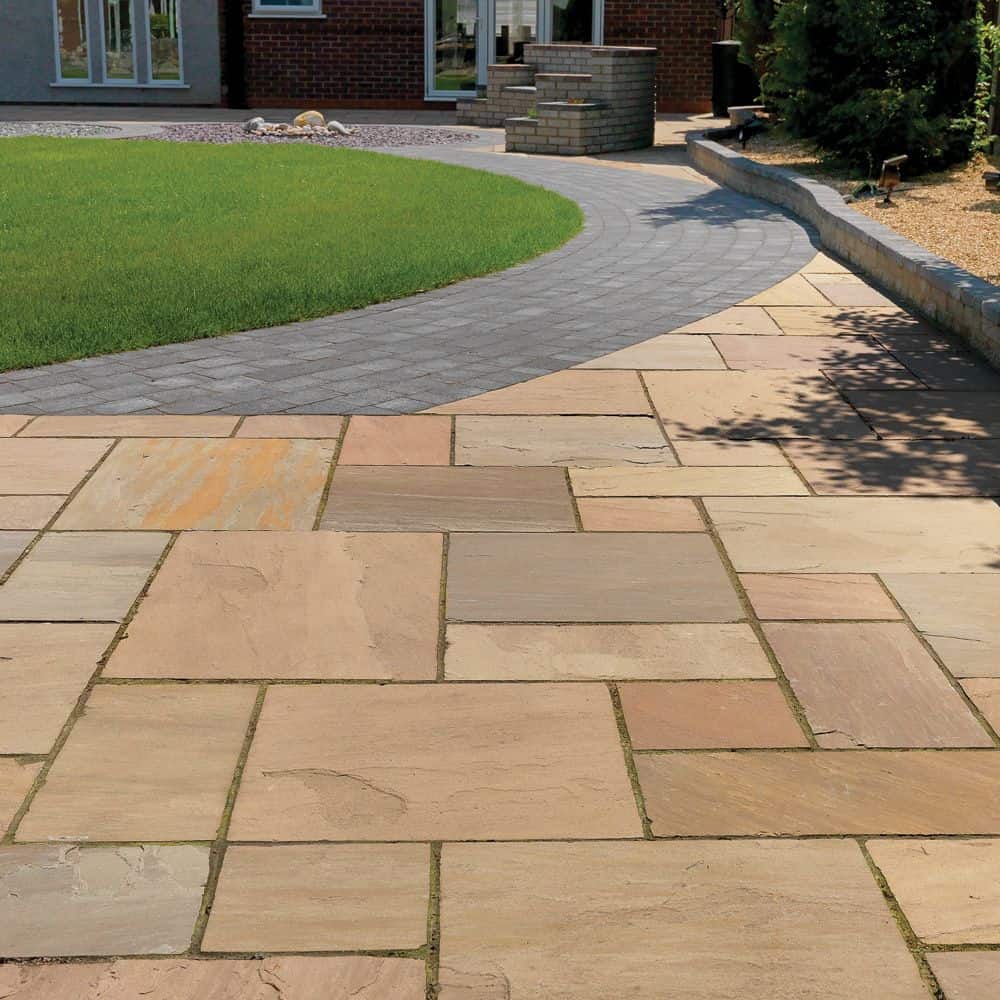
Courtesy – thebridgesmusic
Clay/Brick Pavers:
Clay or brick paver is made with natural material (clay) and it is mixed with the various ingredients, then they are fired in a kiln at extremely high temperature to achieve the strength and also to create rich natural colours that are impervious to ultraviolet radiation.
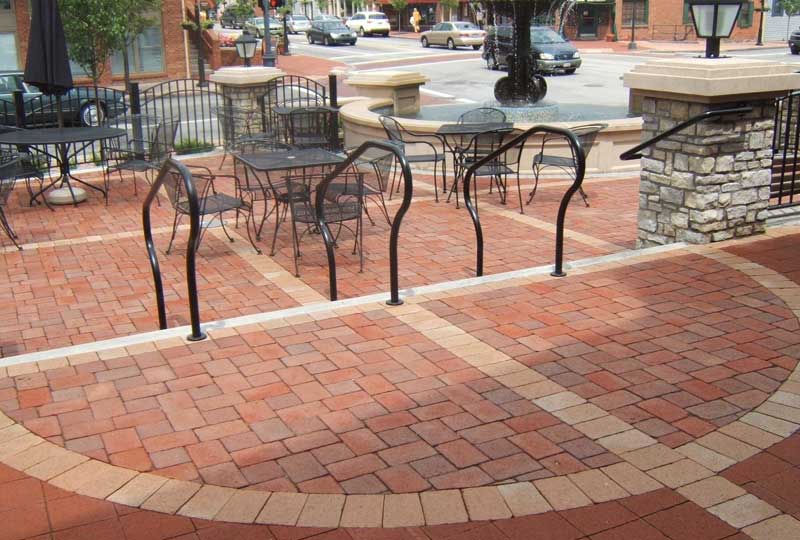
Courtesy – residential.midwestblock
Grass Pavers (Porous Pavers):
Grass pavers are manufactured from either 100% recycled plastic or concrete material. The plastic or concrete grids are laid on the surface, and then vegetation is planted in each of the grid holes. This type of pavers an also be used to achieve sustainability.
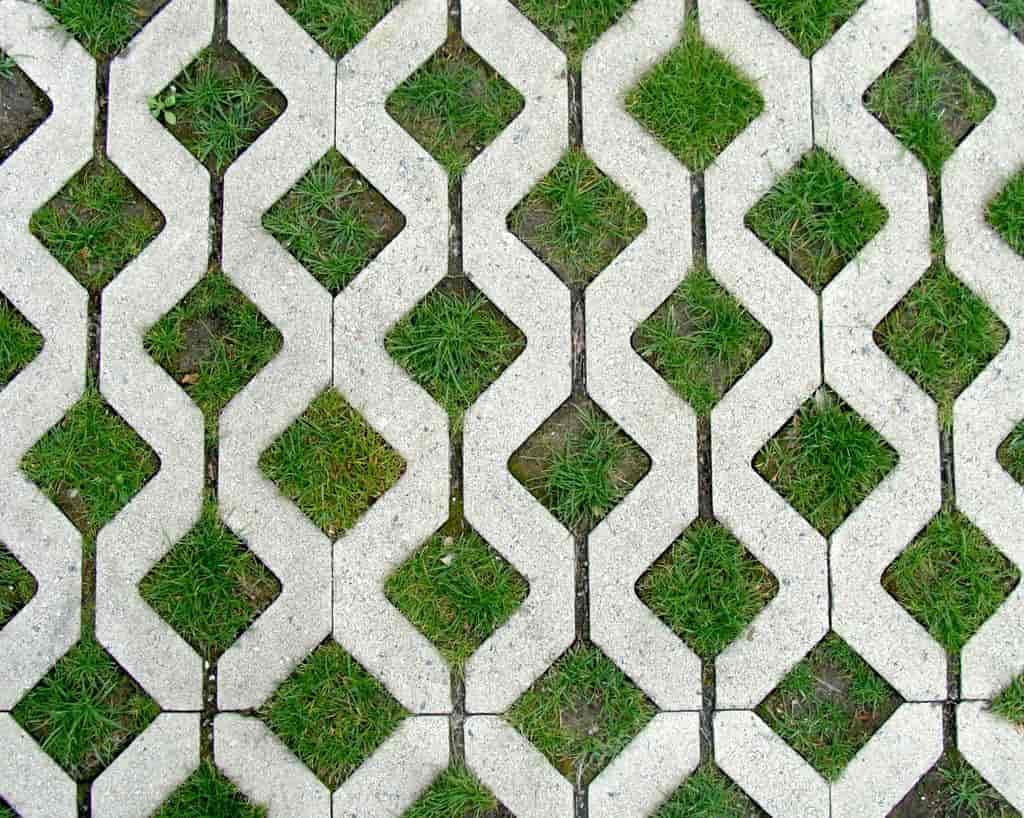
Courtesy – static4.depositphotos
Rubber Pavers:
Rubber pavers are made from recycled tyres. They are an environmentally friendly paving material.
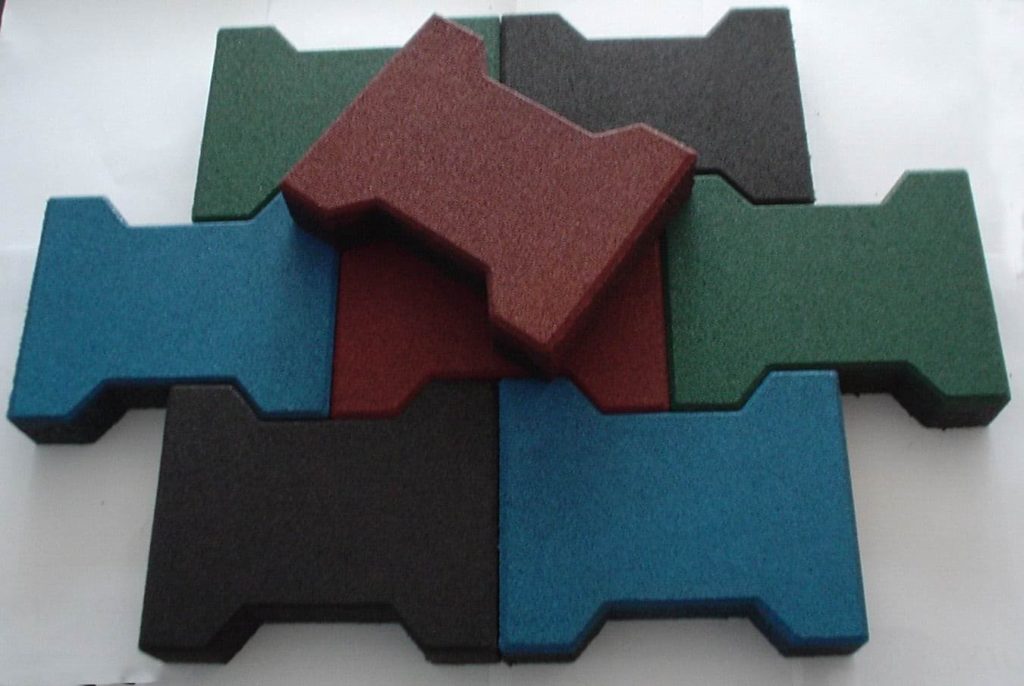
Courtesy – interiorexteriorsolution
Dimensions of the Paver Block
The dimension of interlocking paver block depends on the types of paver:
(a) Length of Paver: It is specified by Manufactures
(b) Width of Paver: It is specified by manufactures
*Length and width of the natural stone paver are different as compared to other pavers.
(c) Thickness of Pavers:
Different types of paver blocks are available in different thicknesses such as:
| Paver Type | Available Thickness |
| ConcretePaver | 40mm, 60 mm, 80 mm, 100 mm, 120 mm |
| Natural Stone Paver | 20 to 60 mm |
| Clay / Brick Paver | 50 to 65 mm |
| Grass Paver (Porous Paver) | 40 mm, 45 mm, 60 mm, 80mm & 100 mm |
| Rubber Paver | 20mm, 25mm, 40 to 60 mm |
Shapes of Pavers
Paver blocks are available in various shapes like, I-shape, rectangular, hexagonal, zigzag, cobble, square shape and various colours (Red, Black, Yellow, Green, Blue etc)
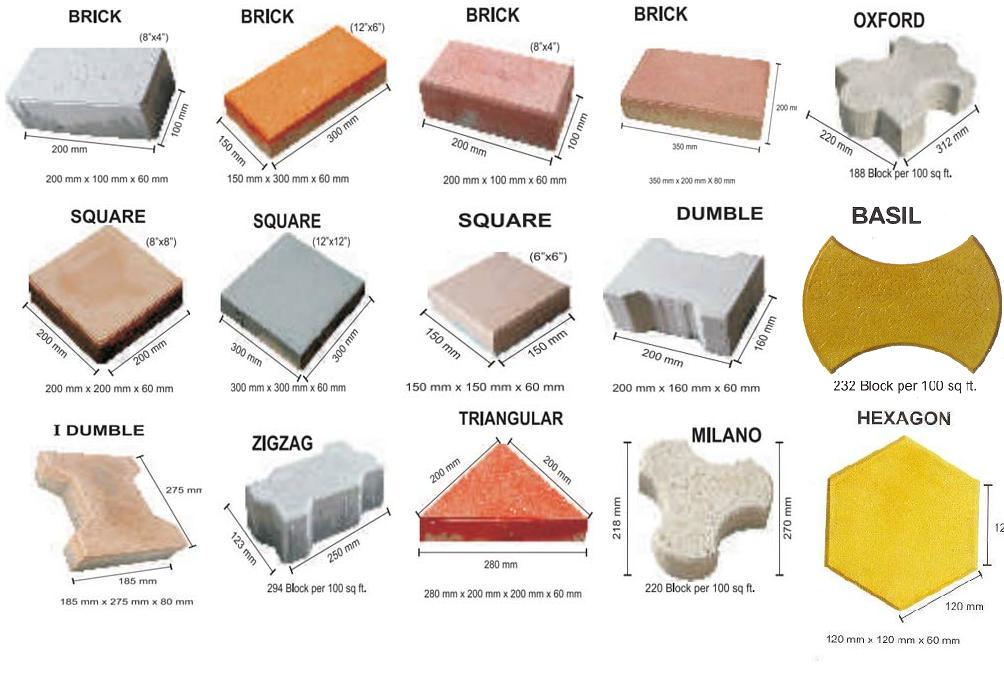
Courtesy – Surabh
Paver Patterns
Paver patterns play a significant role in the long-term stability of the paved surface and its load-bearing capacity. According to Aviara Pavers, block paving is designed for the low traffic, medium traffic as well as heavy traffic.
Block paving laying patterns as per the traffic load:
90-Degree Herringbone Paver Pattern:
It is suitable for all loading categories up to heavy-duty commercial traffic pavement.
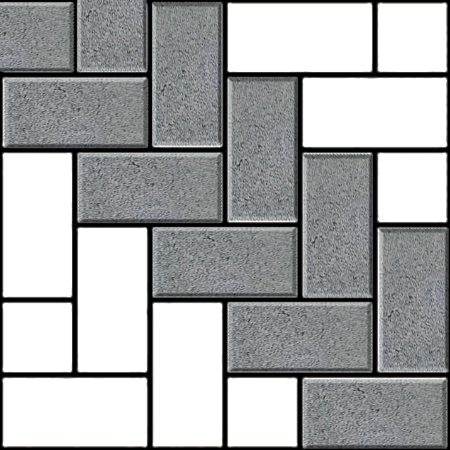
Courtesy – Perthtradecentre
45-Degree Herringbone Paver Pattern:
It is suitable for all loading categories up to heavy-duty commercial traffic pavement.
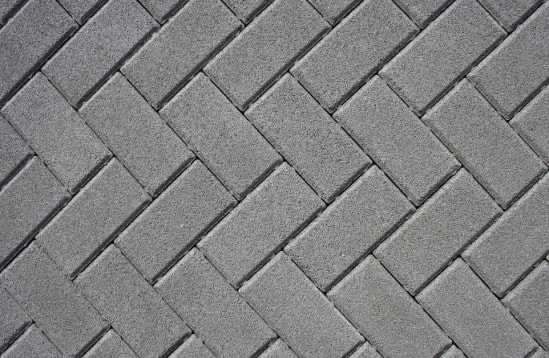
Courtesy – Attardbros
Parquet or Basket Weave Paver Pattern:
It is suitable for pedestrian areas only & not recommended for vehicular traffic areas.
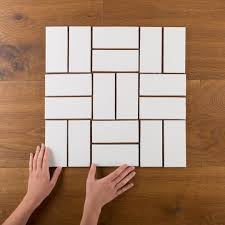
Courtesy – encrypted
Stack Bond Paver Pattern:
It is suitable for pedestrian areas only & not recommended for vehicular traffic areas
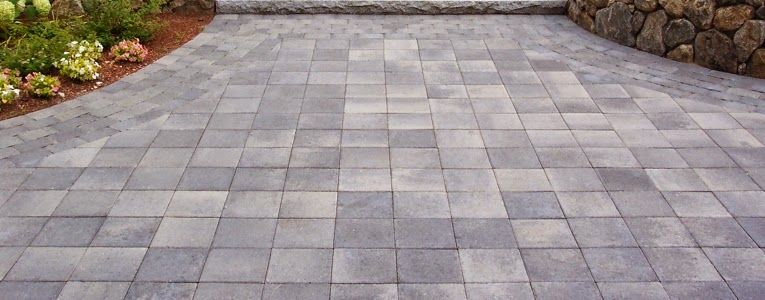
Courtesy – Blogspo
Stretcher Bond Paver Pattern and Random Stretcher Bond Paver Pattern:
Both patterns are suitable for medium traffic commercial pavements (once to twice weekly goods vehicle traffic & it should be laid with longitudinal joints at 90 degrees to the direction of traffic).
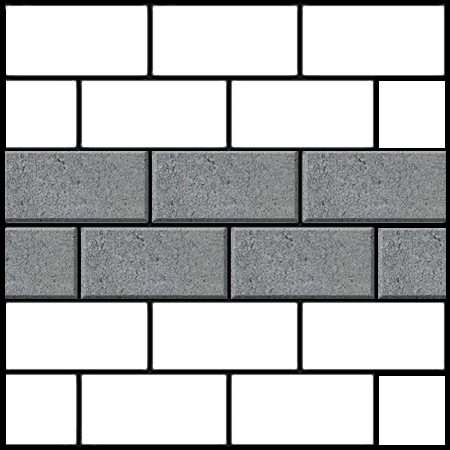
Courtesy – Perthtradecentre
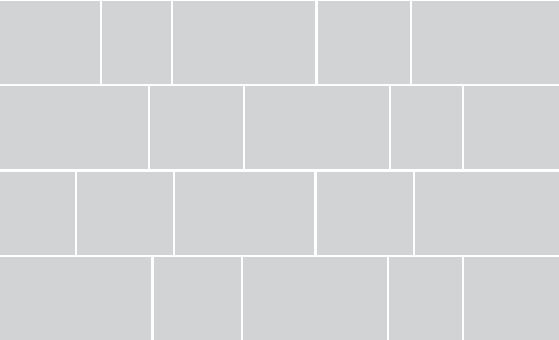
Courtesy – Easypave
Use of Paver Blocks
Paver block are used in various application such as,
In Residential Areas:
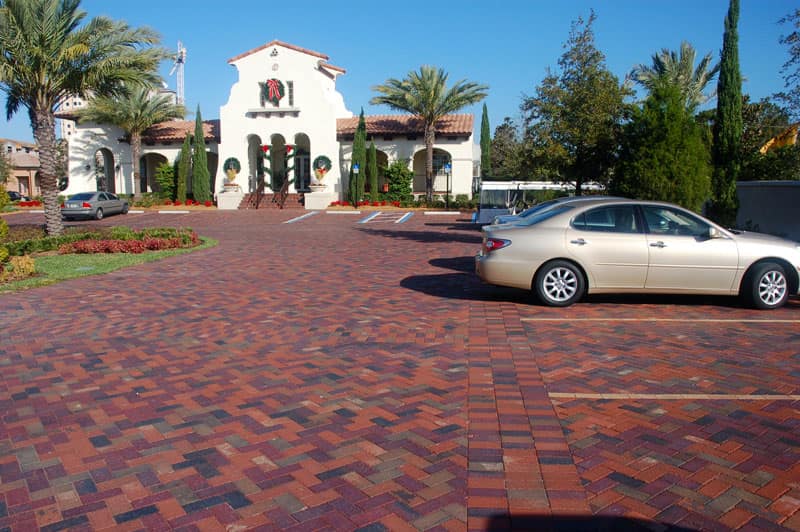
Courtesy – artisticpas
- Entrance
- Patio or Driveway
- Walkway
- Parking Area
- Compounds
- Pool deck
In Commercial & Industrial Area:
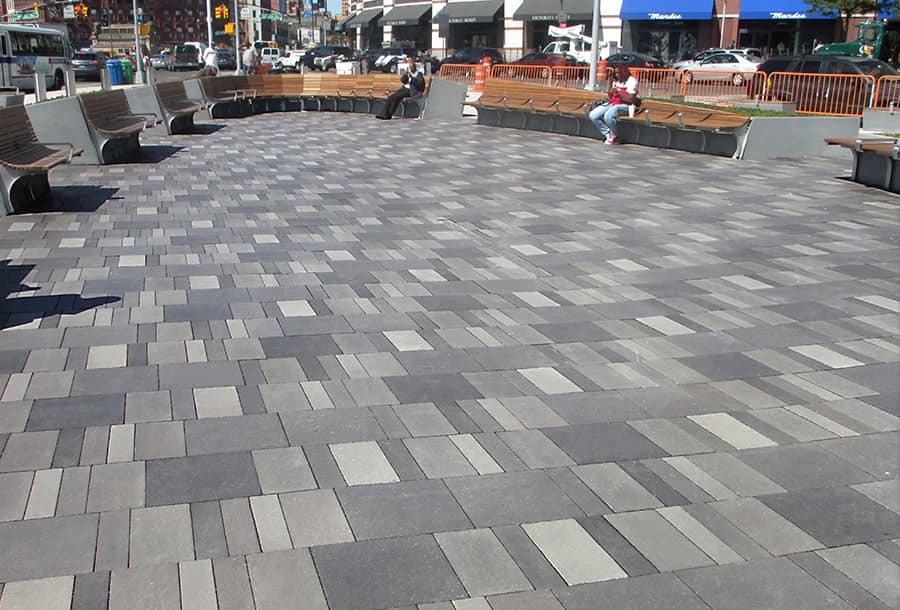
Courtesy – archpaper
- Plazas
- Showrooms
- Malls
- Hotels, Restaurants
- Petrol Pumps
- Parking Areas
In Municipal Control Areas:
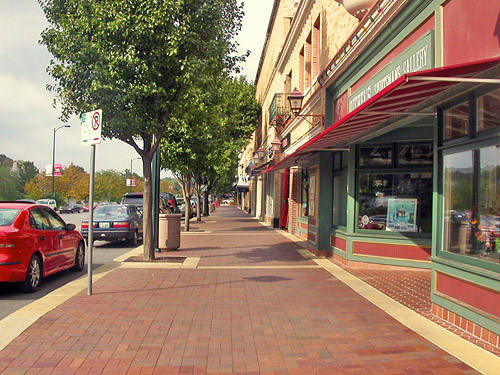
Courtesy – sfbetterstreets
- Roads
- Footpath
- Streets
- Dividers
- Bus stops
- Traffic Junctions
Other Use:
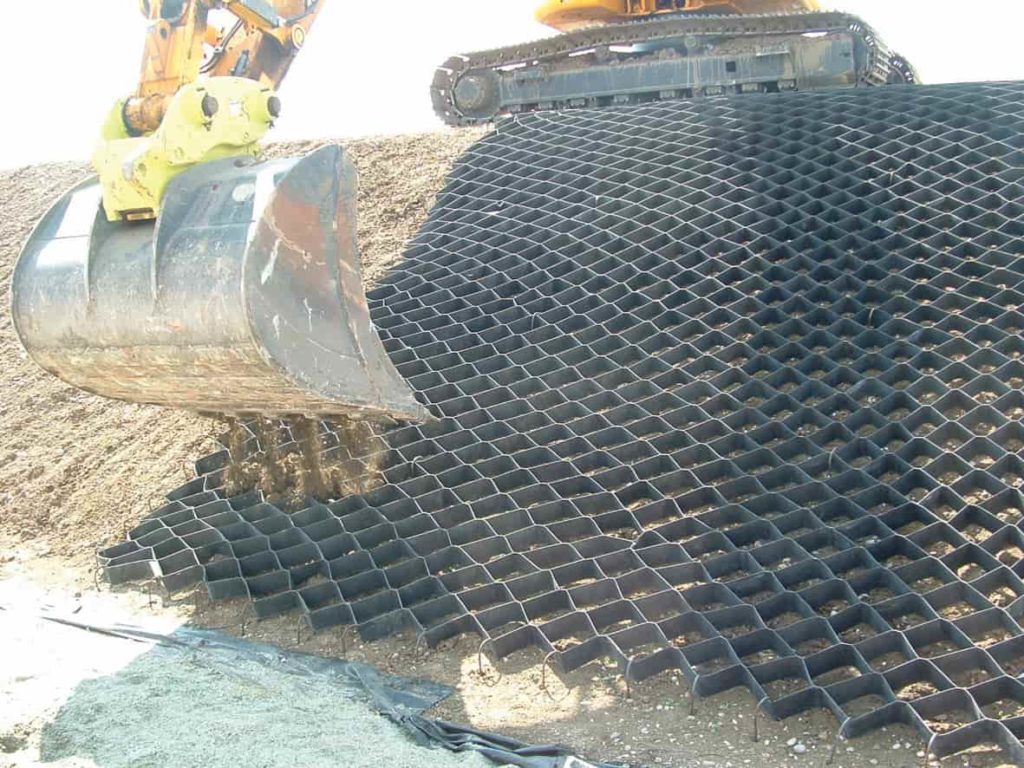
Courtesy – hrewddnews.files.wordpress
- Pathway of Gymnasiums and Playground
- Airport
- For Embankment Wall
- Slope Protection and Erosion
Pavers Cost
Pavers cost depends on its type, shape and thickness of paver. Its price is between Rs 10 (0.15 $) to 50 (0.77 $) per piece or Rs 20 (0.31 $) to 75 (1.16 $) per sqft.
*Mass production of paver blocks has reduced cost of paver and has made it easily affordable.
Installation of Paver Block
Pavers are flexible pavement, so it is necessary to install pavers properly so that it gives less maintenance.
Paver blocks are cut into standard sizes, and it can be laid in the interlocking pattern. The joint of paver block are filled with fine sand and then sealed with a binding agent.
Paver blocks not only add natural beauty and elegance to your outdoor, but they are also the most durable alternative. Using pavers, you can achieve a great look to your structure as compared to the plain yard.
